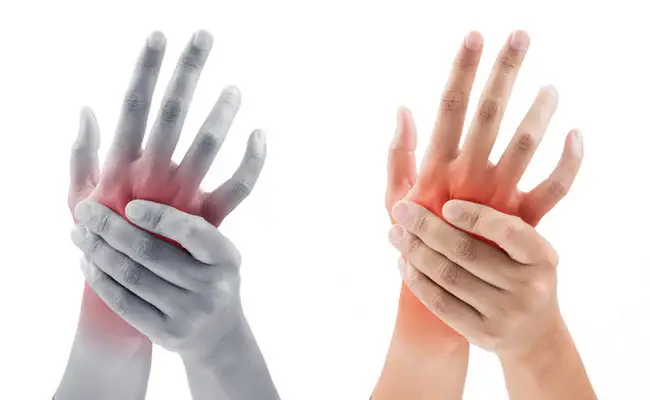Have you ever woken up with a numb or tingling sensation in your hands? If your answer is yes, you’re not alone. For many people, this pins-and-needles feeling can be an unsettling start to the day. Fortunately, in most cases, this sensation isn’t dangerous on its own.
According to the Mayo Clinic, “Numbness alone isn’t usually associated with potentially dangerous disorders, such as strokes or tumors.” While the sensation may feel alarming, it is often linked to temporary or non-serious causes that are relatively easy to address.
Let’s explore why you may experience numbness or tingling in your hands, what underlying factors might be at play, and how to manage or prevent it.
Common Causes of Hand Numbness
Sleeping Position
One of the most common reasons for waking up with numb hands is your sleeping position. If you’ve been lying with your hands under your body or resting your head on your arm for an extended period, this can compress the nerves and restrict blood flow. This restricted circulation is what causes the temporary loss of sensation or the tingly pins-and-needles feeling.
The good news is that this type of numbness usually resolves quickly once you change positions or start moving your hand to restore normal blood flow.
Repetitive Hand Movements
Another common cause of tingling sensations is repetitive movements involving the hands and fingers. Actions like typing, writing, or using tools over an extended period can lead to nerve compression.
A well-known example of this is carpal tunnel syndrome, a condition where the median nerve in the wrist becomes compressed. This can result in numbness, tingling, or even pain in the hands. According to Healthline, “If the condition persists, it can cause permanent nerve damage. Sometimes surgery is necessary to relieve the pressure.”
If you regularly perform repetitive tasks, taking frequent breaks, practicing good ergonomics, and wearing wrist braces can help alleviate the strain on your nerves.
Vitamin and Nutrient Deficiencies
Your diet can also play a significant role in the health of your nerves. A deficiency in certain vitamins, particularly vitamin B12, can lead to numbness or tingling in the hands and feet.
Vitamin B12 is crucial for maintaining healthy nerve function and is commonly found in animal products like eggs, meat, dairy, and fortified cereals. Vegans and vegetarians are more susceptible to B12 deficiency because plant-based diets often lack sufficient levels of this vitamin.
If you suspect a deficiency, consult a healthcare provider to discuss dietary changes or supplements.
Electrolyte Imbalance
Electrolytes like calcium, potassium, and sodium are essential for proper nerve signaling. When these levels drop, it can disrupt nerve function and cause tingling sensations in your hands or feet.
This imbalance can occur due to dehydration, certain medications, or underlying health conditions. To avoid this, stay hydrated, eat nutrient-rich foods, and seek medical advice if symptoms persist.
Underlying Medical Conditions
While many cases of hand numbness are harmless, persistent or recurring tingling can indicate an underlying health issue. Some potential causes include:
- Diabetic Neuropathy
People with long-term high blood sugar levels can experience nerve damage, a condition known as diabetic neuropathy. This often manifests as numbness, tingling, or burning sensations in the hands and feet. - Compressed Nerves
Nerve compression can occur due to a herniated disc or neck spondylosis (age-related wear and tear of the spine). These conditions can put pressure on nerves leading to the hands, causing numbness or tingling. - Autoimmune Disorders
Autoimmune diseases like rheumatoid arthritis can cause inflammation and damage to nerves, resulting in numbness or tingling. - Circulation Issues
Poor blood circulation can reduce oxygen supply to the nerves, causing a pins-and-needles sensation. This could be due to conditions like peripheral artery disease or blood clots. - Ganglion Cysts and Infections
Non-cancerous growths, such as ganglion cysts, can compress nearby nerves, leading to numbness. Certain infections, including Lyme disease, can also affect the nerves and cause tingling sensations.
When to Seek Medical Attention
Although hand numbness is often harmless and resolves on its own, persistent or worsening symptoms should not be ignored. Seek medical attention if you experience:
- Numbness lasting longer than a few minutes or recurring frequently.
- Weakness or difficulty moving your hands or fingers.
- Numbness accompanied by pain, swelling, or other unusual symptoms.
A healthcare professional can evaluate your symptoms, perform tests if necessary, and recommend appropriate treatments.
Preventing and Managing Hand Numbness
To reduce the likelihood of waking up with numb or tingly hands, try the following:
- Adjust Your Sleeping Position
Avoid sleeping in positions that put prolonged pressure on your hands or arms. You can use pillows to support your arms and maintain better posture during sleep. - Take Breaks from Repetitive Tasks
If your work or hobbies involve repetitive hand movements, take regular breaks to rest your hands. Stretching exercises can also help reduce strain. - Maintain a Balanced Diet
Ensure you’re getting enough vitamins and nutrients, particularly vitamin B12, calcium, and potassium. A balanced diet can support nerve health and overall well-being. - Stay Hydrated
Proper hydration is essential for maintaining healthy nerve and muscle function. Drink plenty of water throughout the day, especially if you’re physically active. - Consult a Doctor
If you have an underlying medical condition like diabetes or arthritis, work with your healthcare provider to manage it effectively and minimize complications.
By understanding the potential causes and taking proactive steps, you can address hand numbness and reduce its impact on your daily life. While most cases are not serious, seeking medical advice for persistent symptoms can ensure you’re taking the right approach to protect your health.

